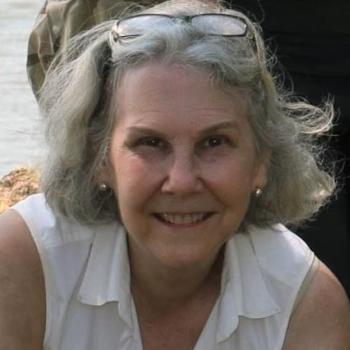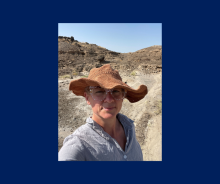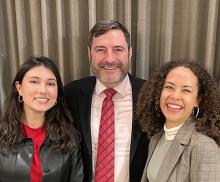
Julia A. King, professor of anthropology and the George B. and Willma Reeves Endowed Chair in the Liberal Arts; Scott Strickland '08 and Rappahannock Tribe Chief G. Anne Richardson were recently recognized by the Omohundro Institute for having authored the best article in the 2023 issues of the William and Mary Quarterly for “Rappahannock Oral Tradition, John Smith’s Map of Virginia, and Political Authority in the Algonquian Chesapeake.”
"Scott, Chief Anne Richardson and I are thrilled to receive the Cappon Award. The prize recognizes the important work we, along with our students, are doing with Indigenous communities in Tidewater Virginia," King said.
The annual best-article award is named in memory of former editor of the Quarterly, Lester J Cappon. The article challenges traditional historical perceptions of Indigenous political authority, using environmental evidence, oral history, and Geographic Information System technology to show that the Rappahannock nations were independent of the Powhatan chiefdom located further south along the James and York Rivers. King said that the finding is opening new avenues for understanding the roles played by Indigenous people as their land was increasingly occupied by English settlers.
The awarding institute wrote of the article, “Rappahannock Oral Tradition” not only revises our understanding of the 17th century Chesapeake but it powerfully reaffirms the right of Indigenous communities to narrate their own histories.”
After learning of the best-article award, King explained that it is an accomplishment to get an article placed in the highly selective Quarterly, let alone be identified as the best. She also acknowledged staff from the College, especially in the Office of Research and Sponsored Programs. “Scott, Chief Anne and I could've never even been in the race if it wasn't for SMCM helping with getting grants, providing infrastructure, finding time to think, letting our students in on the fun and supporting us every step of the way.”
King, Strickland and Chief Richardson received the 2024 Robert F. Heizer Article Award earlier this year from the American Society for Ethnohistory for the same article.



